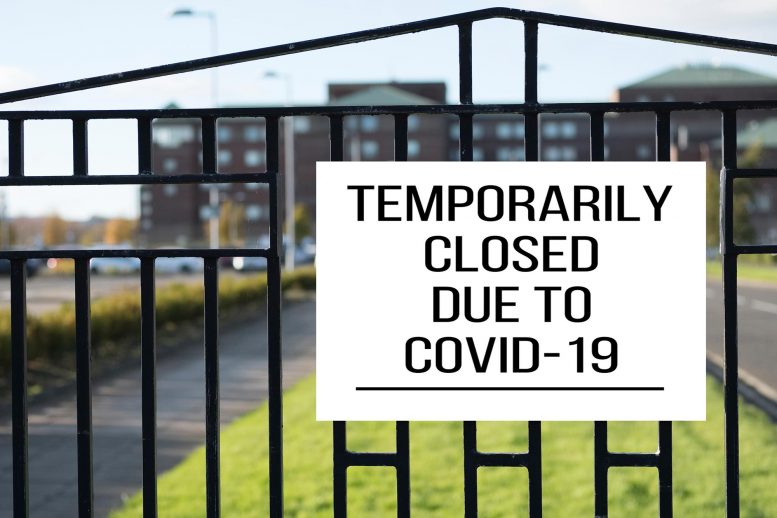
COVID-19 could lead to the cancellation or postponement of 28.4 million elective surgeries worldwide in 2020, and each additional week of hospital service disruption may result in 2.4 million more cancellations.
Over 28 million elective surgeries across the globe could be canceled as a result of the COVID-19 pandemic — leading to patients facing a lengthy wait for their health issues to be resolved, a new study reveals.
The CovidSurg Collaborative has projected that, based on a 12-week period of peak disruption to hospital services due to COVID-19, 28.4 million elective surgeries worldwide will be canceled or postponed in 2020.
The modeling study, published in the British Journal of Surgery, indicates that each additional week of disruption to hospital services will be associated with a further 2.4 million cancellations.
Led by researchers at the University of Birmingham, researchers collected detailed information from surgeons across 359 hospitals and 71 countries on plans for cancellation of elective surgery. This data was then statistically modeled to estimate totals for canceled surgery across 190 countries (attached).
The researchers project that worldwide 72.3% of planned surgeries would be canceled through the peak period of COVID-19 related disruption. Most canceled surgeries will be for non-cancer conditions. Orthopedic procedures will be canceled most frequently, with 6.3 million orthopedic surgeries canceled worldwide over a 12-week period. It is also projected that globally 2.3 million cancer surgeries will be canceled or postponed.
In the United Kingdom, the National Health Service advised hospitals to cancel most elective surgeries for 12 weeks. It is estimated that this will result in 516,000 canceled surgeries, including 36,000 cancer procedures. These cancellations will create a backlog that will need to be cleared after the COVID-19 disruption ends.
If, after the disruption ends, the NHS increases the number of surgeries performed each week by 20% compared to pre-pandemic activity, it will take 11 months to clear the backlog. However, each additional week of disruption will lead to the cancellation of an extra 43,300 surgeries, significantly extending the period it will take to clear the backlog.
Mr. Aneel Bhangu, Consultant Surgeon and Senior Lecturer at the NIHR Global Health Research Unit on Global Surgery at the University of Birmingham commented: “During the COVID-19 pandemic elective surgeries have been canceled to reduce the risk of patients being exposed to COVID-19 in hospital, and to support the wider hospital response, for example by converting operating theatres into intensive care units.
“Although essential, cancellations place a heavy burden on patients and society. Patients’ conditions may deteriorate, worsening their quality of life as they wait for rescheduled surgery. In some cases, for example cancer, delayed surgeries may lead to a number of unnecessary deaths.”
Dr. Dmitri Nepogodiev, Research Fellow at the NIHR Global Health Research Unit on Global Surgery at the University of Birmingham said: “Each additional week of disruption to hospital services results in an additional 43,300 surgeries being canceled, so it is important that hospitals regularly assess the situation so that elective surgery can be resumed at the earliest opportunity.
“Clearing the backlog of elective surgeries created by COVID-19 will cost the National Health Service at least £2 billion. The Government must ensure that the NHS is provided with additional funding and resources to ramp up elective surgery to clear the backlog.”
Reference: “Elective surgery cancellations due to the COVID‐19 pandemic: global predictive modelling to inform surgical recovery plans” by CovidSurg Collaborative, Dmitri Nepogodiev and Aneel Bhangu, 12 May 2020, British Journal of Surgery.
DOI: 10.1002/bjs.11746
Notes:
Country-level data on canceled elective surgery is available in the study manuscript for 190 countries. This data is split into 15 specialties providing a comprehensive overview of the local impact of COVID-19 on surgery.
The CovidSurg Collaborative is a research network focusing on the impact of COVID-19 on surgical care. Over 5,000 surgeons from across 120 countries are participating in the CovidSurg program. The Collaborative is leading two cohort studies collecting patient-level surgical outcomes data; currently data on 7,500 patients have been entered by 440 hospitals worldwide.
This study was led by CovidSurg Collaborative members based in the United Kingdom, Benin, Ghana, India, Italy, Mexico, Nigeria, Rwanda, Spain, South Africa, and the United States.
The University of Birmingham is ranked amongst the world’s top 100 institutions, its work brings people from across the world to Birmingham, including researchers and teachers and more than 6,500 international students from over 150 countries.
The National Institute for Health Research (NIHR) awarded £7 million to the University of Birmingham to establish the NIHR Global Health Research Unit on Global Surgery. This unit is engaged in conducting multi-country randomized controlled trials testing interventions to reduce SSI across a range of low- and middle-income countries.









And likely 50% of all these surgeries are unnecessary! When all you have is a hammer, everything looks like a nail.